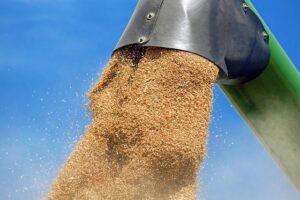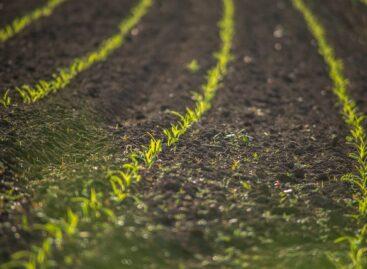Imre Hubai: Sufficient Quantity and Good Quality of Grain Harvested in Hungary
This year’s harvest has yielded a satisfactory quantity and quality of grain in Hungary – announced Imre Hubai, State Secretary for Agriculture at the Ministry of Agriculture, during a press conference following the meeting of the Harvest Coordination Committee. He emphasized that the government will continue to ensure access to irrigation water for farmers.

(Photo: Pixabay)
According to current data, Hubai expressed confidence in the harvest, stating that the nation’s bread supply is secure. The government has placed strong emphasis on ensuring that farmers have access to sufficient irrigation water, helping to mitigate the effects of climate change and stabilize crop yields.
Water reserves and irrigation are strategic priorities
The availability of irrigation water is particularly crucial during the current drought. Hubai noted that the water stored in rivers and reservoirs is still sufficient to meet agricultural demands. To support the most urgent needs, the government has allocated HUF 4.7 billion. The State Secretary also stressed that due to rising energy prices caused by the war in Ukraine and EU sanctions, the cost of water services has increased significantly. In response, the government decided to cover irrigation water service fees for farmers with an additional HUF 10 billion. This measure, unique within the European Union, has sparked debates in Brussels, but Hungary remains the only member state to support free agricultural water use. According to Hubai, it is shameful that opposition parties and politicians are opposing the measure. Hubai urged farmers to establish irrigation communities if they have not yet done so. The government ensures the delivery of surface water necessary for their operations. Irrigation not only supports agricultural production but also provides ecological benefits by cooling the landscape. Its added value can reach as much as HUF 100,000 per hectare.
Harvest status: barley, wheat, and rapeseed
According to Tamás Petőházi, President of the National Association of Cereal Producers, farmers growing autumn cereals faced a challenging season. After flooding in September came prolonged drought, and in many areas, seeds had to be sown into dry, dusty soil. Winter and spring brought little rainfall, leaving lower soil layers dry. Despite these difficulties, the national average yield for barley stands at around 5.6 tons per hectare, which is considered acceptable under the circumstances. The wheat harvest is just beginning, making estimates harder, but the expected average is 4.8 tons per hectare. With 976,000 hectares sown, around 4.5 million tons of high-quality wheat is anticipated, while domestic demand is approximately 2 million tons. The surplus is likely to find buyers within the EU, especially as local prices rose from HUF 65,000 to 70–72,000 per ton within a week. Winter rapeseed was planted on 144,000 hectares, with an expected average yield of 2.2 tons per hectare. So far, only about 20% of the area has been harvested. Despite an unfavorable growing season, Petőházi believes the area under cultivation should be expanded to 200,000 hectares. Talks with the agricultural ministry and other organizations are already underway. The current weather does not favor row crops, and if the drought persists, significant yield losses are expected in maize and sunflower production. Petőházi also noted that agricultural markets are primarily driven by global conflicts and market forces, rather than local fluctuations. Rising oil prices, for example, tend to push grain prices higher. Additionally, no exceptional yields are expected in the EU or Ukraine this year, which could influence export opportunities and prices.
MTI
Related news
The government provides significant funding to support the development of crop dryers
🎧 Hallgasd a cikket: Lejátszás Szünet Folytatás Leállítás Nyelv: Auto…
Read more >Agricultural vocational training also places great emphasis on irrigation development
🎧 Hallgasd a cikket: Lejátszás Szünet Folytatás Leállítás Nyelv: Auto…
Read more >Related news
EY Businessman of the Year: Tibor Veres is the grand prize winner, six special awards were also given out
🎧 Hallgasd a cikket: Lejátszás Szünet Folytatás Leállítás Nyelv: Auto…
Read more >dm’s Together for Babies program continues this year
🎧 Hallgasd a cikket: Lejátszás Szünet Folytatás Leállítás Nyelv: Auto…
Read more >







